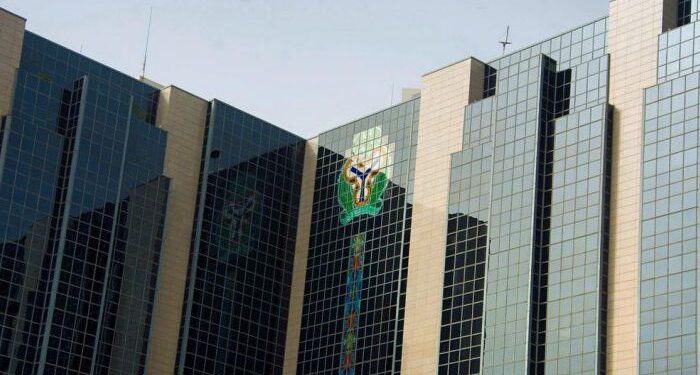The Central Bank of Nigeria (CBN) has directed that all Point of Sale (PoS) terminals across the country be geo-tagged as part of renewed efforts to combat the increasing wave of electronic fraud. The policy, which is set to take effect in collaboration with banks, fintech operators, and payment service providers, aims to improve the monitoring of transaction points, enhance transparency in payment systems, and strengthen consumer protection.
According to the CBN, the rise in electronic payment adoption has been accompanied by a surge in fraudulent activities, especially those perpetrated through PoS terminals. Criminal syndicates have taken advantage of weak tracking systems to operate unregistered or fake PoS machines, leading to the loss of billions of naira by unsuspecting Nigerians. By mandating geo-tagging, the apex bank seeks to ensure that every PoS machine in operation can be digitally located and monitored in real time, reducing the chances of misuse by fraudsters.

The new directive requires that PoS operators capture the precise geographical coordinates of their terminals during registration and activation. This data will then be integrated into a centralized system that allows regulators and financial institutions to trace transactions to specific locations. CBN officials explained that geo-tagging will not only make it easier to identify fraudulent operators but will also help in resolving transaction disputes, as customers will have verifiable details of where transactions occurred.
The directive follows recent reports of growing consumer complaints over unauthorized debits, cloned PoS terminals, and fraudulent reversals. The Nigeria Inter-Bank Settlement System (NIBSS) had earlier disclosed that electronic fraud cases have been on the rise, with PoS transactions forming a significant percentage of such cases. By introducing geo-tagging, the CBN hopes to restore confidence in digital payments and protect Nigeria’s progress toward becoming a predominantly cashless economy.
Industry experts have welcomed the policy, describing it as a necessary step to address loopholes in the payment ecosystem. They noted that while PoS technology has brought financial services closer to millions of Nigerians, particularly in rural and underserved areas, it has also created new vulnerabilities that criminals exploit. According to analysts, the lack of robust monitoring tools has allowed fraudulent PoS agents to thrive, making consumers skeptical of using digital channels.
Operators in the fintech space have also acknowledged the move, though they stressed the need for proper stakeholder engagement to ensure seamless implementation. They cautioned that small-scale operators, who form the bulk of PoS agents in local communities, might struggle with the technical and financial requirements of compliance. Some suggested that the CBN should provide incentives or subsidies to reduce the cost burden and encourage full adoption across the country.
The CBN, however, assured stakeholders that the initiative would be rolled out in phases to avoid disruption of payment services. The apex bank also emphasized that the long-term benefits of fraud prevention far outweigh any initial challenges. In addition to geo-tagging, the CBN revealed plans to introduce stricter Know Your Customer (KYC) requirements for PoS operators, increased monitoring of agent banking networks, and enhanced collaboration with law enforcement agencies to track and prosecute offenders.
Consumer advocacy groups have praised the policy, stating that it would help safeguard vulnerable users who rely heavily on PoS services for daily transactions. They argued that fraud-related losses have worsened financial exclusion, as many Nigerians who fall victim to scams become discouraged from using digital platforms. By curbing fraudulent practices, geo-tagging could improve trust and drive greater adoption of electronic payments, which is in line with Nigeria’s financial inclusion targets.
The decision also reflects a broader global trend in the fight against payment fraud. Many countries, including India and Brazil, have adopted geo-tagging and biometric-linked payment systems to secure transactions. Nigeria’s adoption of such measures places it among nations using technology-driven tools to improve accountability in financial services. With the increasing role of fintech in Africa’s economic transformation, the CBN’s policy is expected to serve as a model for other countries facing similar challenges.
Experts further noted that the effectiveness of the policy will depend on enforcement and collaboration among stakeholders. Without adequate monitoring and data sharing, geo-tagging could become just another regulation with limited impact. They advised that regulators should ensure regular audits of registered PoS machines, impose penalties for non-compliance, and deploy advanced analytics to detect suspicious patterns in transaction data.
On the economic side, analysts say the move could indirectly strengthen Nigeria’s revenue base by reducing the volume of untraceable transactions that currently slip under the radar. By ensuring that all PoS transactions are geo-tracked, regulators will have better oversight of financial flows, which could help tackle issues such as money laundering, terrorism financing, and tax evasion.
The policy also aligns with President Bola Tinubu’s broader economic reform agenda, which prioritizes strengthening Nigeria’s financial infrastructure to attract investment and support economic growth. By ensuring safer and more transparent payment channels, the CBN is reinforcing its commitment to building a resilient financial system that can meet the demands of a modern economy.
As the implementation date approaches, the spotlight will remain on how banks, fintechs, and agents adapt to the new regulatory landscape. For millions of Nigerians who rely on PoS transactions daily, the success of this initiative will determine whether they continue to embrace cashless payments or revert to cash transactions out of fear of fraud.
In the coming months, the rollout of geo-tagging will test the industry’s readiness for stricter regulatory oversight. If successfully implemented, the policy could become a turning point in Nigeria’s battle against electronic fraud, creating a safer, more reliable, and inclusive financial system for all citizen.
Support InfoStride News' Credible Journalism: Only credible journalism can guarantee a fair, accountable and transparent society, including democracy and government. It involves a lot of efforts and money. We need your support. Click here to Donate
